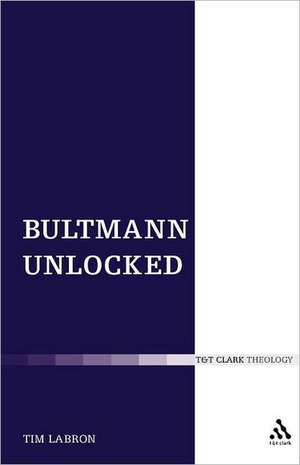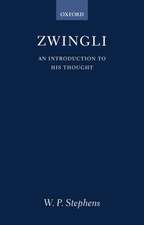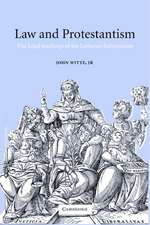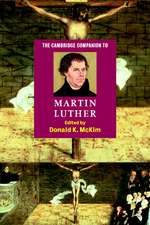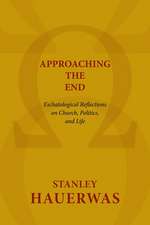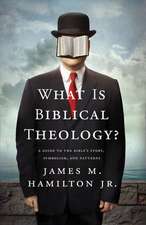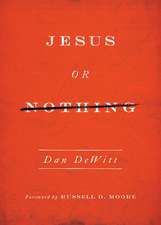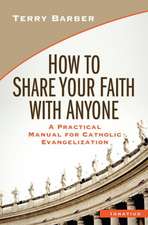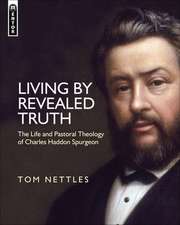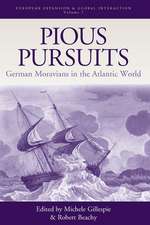Bultmann Unlocked
Autor Dr. Tim Labronen Limba Engleză Paperback – 5 sep 2012
| Toate formatele și edițiile | Preț | Express |
|---|---|---|
| Paperback (1) | 253.54 lei 6-8 săpt. | |
| Bloomsbury Publishing – 5 sep 2012 | 253.54 lei 6-8 săpt. | |
| Hardback (1) | 769.71 lei 6-8 săpt. | |
| Bloomsbury Publishing – 10 noi 2010 | 769.71 lei 6-8 săpt. |
Preț: 253.54 lei
Nou
Puncte Express: 380
Preț estimativ în valută:
48.52€ • 52.69$ • 40.76£
48.52€ • 52.69$ • 40.76£
Carte tipărită la comandă
Livrare economică 23 aprilie-07 mai
Preluare comenzi: 021 569.72.76
Specificații
ISBN-13: 9780567616555
ISBN-10: 056761655X
Pagini: 144
Dimensiuni: 140 x 216 x 8 mm
Greutate: 0.17 kg
Editura: Bloomsbury Publishing
Colecția T&T Clark
Locul publicării:London, United Kingdom
ISBN-10: 056761655X
Pagini: 144
Dimensiuni: 140 x 216 x 8 mm
Greutate: 0.17 kg
Editura: Bloomsbury Publishing
Colecția T&T Clark
Locul publicării:London, United Kingdom
Caracteristici
Shows
the
unique
character
of
Bultmann
outside
traditional
exegetical
or
hermeneutic
framworks
Notă biografică
Tim
Labron
is
Associate
Professor
of
Religious
Studies
at
Concordia
University
College
of
Alberta,
Canada.
Cuprins
PART
I
INTRODUCTION1.Short
Biography
and
Reception
of
BultmannPART
II
BULTMANN
AND
THE
LOCK2.
Paradigm
and
Paradox:
John
1:143.
Flesh
or
Glory?4.
Historie
or
GeschichtePART
III
BULTMANN'S
KEYS
RENEWED5.
Demythologizing
and
Justification
by
Faith6.
From
Cartesian
to
Anti-Cartesian
Thought
7.
A
Post-Structural
Context8.
Wittgensteinian
ParallelsPART
IV
BULTMANN
UNLOCKED9.
Dissolving
Locks
and
Philosophy10.
Implications
for
Theology
and
Religious
Studies
Recenzii
Only
a
few
years
ago
taking
a
degree
in
Christian
origins
or
Protestant
Christian
theology
would
have
included
at
least
some
acquaintance
with
Rudolf
Bultmann.
But
Bultmann's
writings,
like
Eliade's
in
the
field
of
comparative
religion,
are
now
more
often
criticized
or
simply
ignored.
Dr.
Labron,
while
not
overlooking
the
problems
with
Bultmann's
work,
insists
here
on
its
perennial
value
for
scholars
in
general
and
Christians
in
particular.
He
considers
Bultmann's
key
point
to
be
succinctly
expressed
in
his
exegesis
of
John
1:14a,
underlining
the
divine
as
the
counter-pole
to
the
human,
and
the
incarnation
as
a
deep
paradox.
Labron
emphasizes
Bultmann's
radical,
independent
thought,
while
also
lingering
on
its
deep
points
of
similarity
with
Ludwig
Wittgenstein.
Bultmann's
critique
of
objective
historical
research-stated
more
generally
and
in
Christian
terms:
the
human
proclivity
to
justify
oneself-encourages
Labron
to
challenge
some
of
the
current
assumptions
in
the
academic
study
of
religion
by
honouring
the
role
of
religious
observers.
Indeed,
throughout
this
book
Labron
seeks
to
unlock
the
potential
he
sees
in
Bultmann
to
generate
fresh
thought
and
sound
Christian
theology.
This
book
is
a
superb
testimony
to
the
creative
energies
of
both
these
German
and
Canadian
scholars.
Labron notes that the work of Bultmann has fallen into obscurity. If his work is mentioned these days, its fate is a dismissive nod consigning it to the dustbins of the past. Labron rightly argues that this situation is unjustifiable, a consequence of a failure to grasp the import of Bultmann's work. That failure is rooted in misunderstanding, which Karl Barth noted, was common among Bultmann's contemporary critics. Nothing has changed. The aim of his book is to unlock Bultmann's thought from obscurity and the prison of dismissive misunderstanding. He does not seek to gain uncritical acceptance of Bultmann's thought, but to reveal what Bultmann called the actual scandal of the gospel. Using his own work on Wittgenstein and post-structuralism he sets out to show that Bultmann's existentialism is actually opposed to Cartesian thought, thus requiring reassessment.
Tim Labron has written a highly provocative book on Wittgenstein and Theology. He argues that Wittgenstein's philosophy moves away from the prevalent Western tradition of philosophy towards Jewish thought and finally Christian thought. Whereas Western philosophy and theology largely follow the Platonic and Cartesian paths, Wittgenstein doesn't, not does Chalcedon. This is only one of the many challenging points of this clearly written and well-argued study. It will no doubt provoke discussion about the relationship of Wittgenstein's philosophy to theology, and it should.
Wittgenstein and Theology is a courageous statement in an age when few theologians are able or willing to undertake such original and broad examinations of traditional and contemporary questions. Labron has produced a work which will be of interest to both Wittgenstein specialists and to those who are more generally interested in the relationship between modern philosophy and theology in the Christian tradition.
Labron notes that the work of Bultmann has fallen into obscurity. If his work is mentioned these days, its fate is a dismissive nod consigning it to the dustbins of the past. Labron rightly argues that this situation is unjustifiable, a consequence of a failure to grasp the import of Bultmann's work. That failure is rooted in misunderstanding, which Karl Barth noted, was common among Bultmann's contemporary critics. Nothing has changed. The aim of his book is to unlock Bultmann's thought from obscurity and the prison of dismissive misunderstanding. He does not seek to gain uncritical acceptance of Bultmann's thought, but to reveal what Bultmann called the actual scandal of the gospel. Using his own work on Wittgenstein and post-structuralism he sets out to show that Bultmann's existentialism is actually opposed to Cartesian thought, thus requiring reassessment.
Tim Labron has written a highly provocative book on Wittgenstein and Theology. He argues that Wittgenstein's philosophy moves away from the prevalent Western tradition of philosophy towards Jewish thought and finally Christian thought. Whereas Western philosophy and theology largely follow the Platonic and Cartesian paths, Wittgenstein doesn't, not does Chalcedon. This is only one of the many challenging points of this clearly written and well-argued study. It will no doubt provoke discussion about the relationship of Wittgenstein's philosophy to theology, and it should.
Wittgenstein and Theology is a courageous statement in an age when few theologians are able or willing to undertake such original and broad examinations of traditional and contemporary questions. Labron has produced a work which will be of interest to both Wittgenstein specialists and to those who are more generally interested in the relationship between modern philosophy and theology in the Christian tradition.
